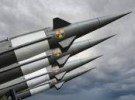On nuclear weapons, how long will Australia continue to be out of step with its nearest neighbours?
Last week, Indonesia, our biggest and closest neighbour, deposited its instrument of ratification of the Treaty on the Prohibition of Nuclear Weapons (TPNW) at the UN. This was a major international and regional development, a good-news story with a very positive impact on international security, but we’ve heard virtually nothing about it from our government and very little in the media.
It should be treated as major news.
Another neighbour, the Solomon Islands also ratified the TPNW last week; other states signed up too, bringing the total number of signatories to 98. That’s pretty good for a treaty which only entered into force in 2021; and more countries will join in coming years. This is important at a time when two of the nine nuclear armed states (Russia and Israel) are overtly threatening to use their nuclear weapons (the other seven nuclear states also threaten to do this; they’ve just been a little less open in saying so).
The Indonesian ratification is also a sober reminder that there are still around 12,500 nuclear weapons in existence, many of them far more destructive than the Hiroshima bomb, and a reminder that the world still lives under the very real – indeed growing – threat of nuclear destruction.
Indonesia’s actions should make Australians ask why our own government remains at odds with the vast majority of our neighbours. Most of the South Pacific states, Southeast Asia, and New Zealand clearly oppose the threat of nuclear weapons.
Why is Australia intent on pleasing........
© Pearls and Irritations





















 Toi Staff
Toi Staff Rami G Khouri
Rami G Khouri David Hutt
David Hutt Moncef Khane
Moncef Khane Gideon Levy
Gideon Levy Andrew Mitrovica
Andrew Mitrovica Neve Gordon
Neve Gordon Ron Kronish
Ron Kronish Patrick Gathara
Patrick Gathara Christoph Strack
Christoph Strack Dr Ramzy Baroud
Dr Ramzy Baroud Brad Glosserman
Brad Glosserman Tuvia Book
Tuvia Book Stefano Lusa
Stefano Lusa
